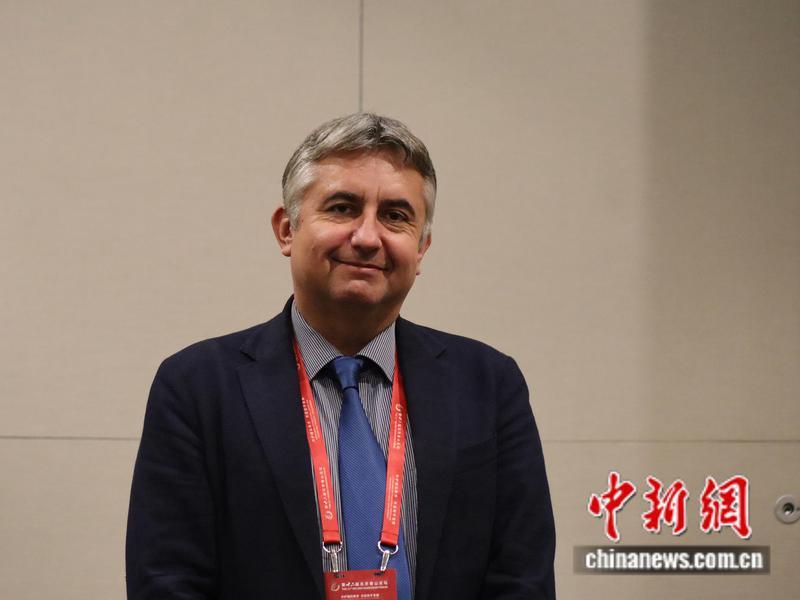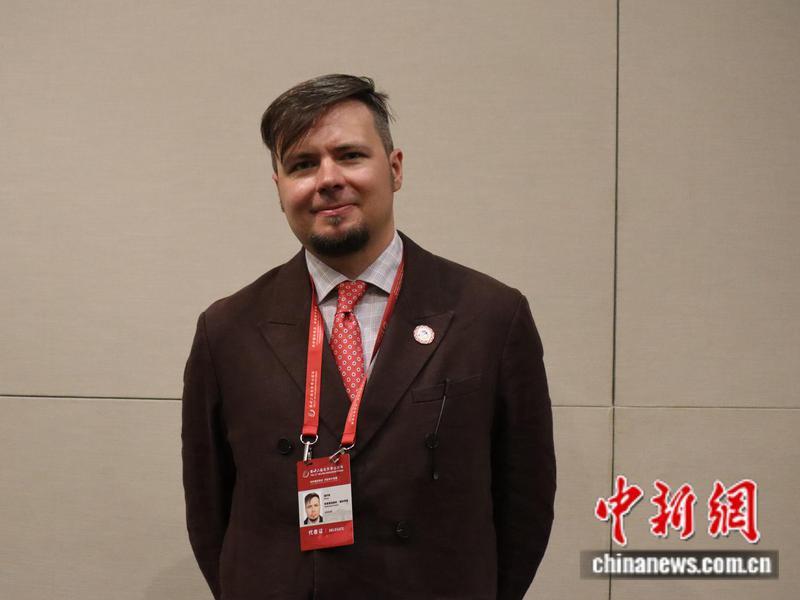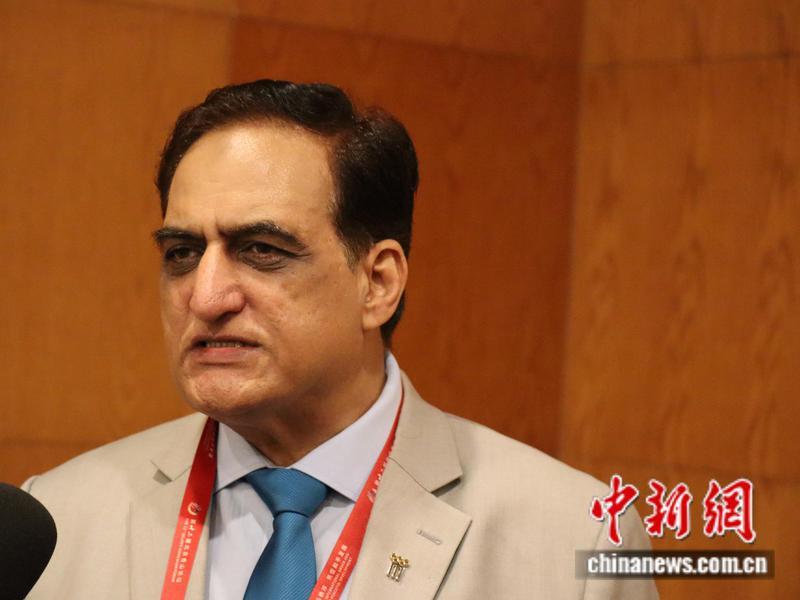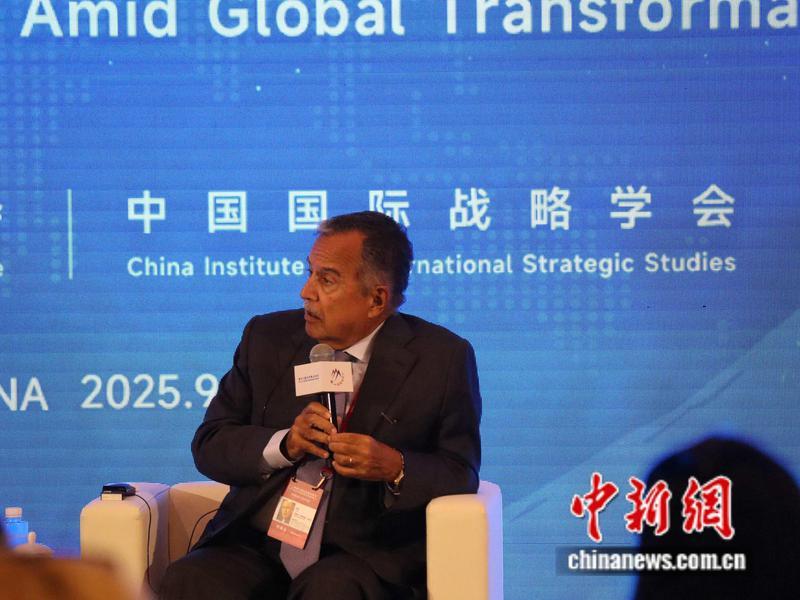

During the 12th Beijing Xiangshan Forum held in Beijing from Sept. 17 to Sept. 19, international experts gave high praise to China’s Global Governance Initiative (GGI) first proposed at the “SCO+” meeting in Tianjin. During the forum, China News Network conducted interviews with three international experts and also attended the keynote speech by former Minister of Foreign Affairs of Egypt, Mohamed Nabil Fahmy, at the “High-end Interview – 80th Anniversary of UN: Advancing Amid Global Transformations,” with all emphasizing the GGI’s significance in addressing current global challenges.
Attila Demko, professor at Hungarian Administrative University and former director of the Defense Policy Bureau of Hungary, noted that China has clear ideas and strong leadership, both of which are crucial for international affairs. As the world’s second-largest economy, China also wields significant influence in the Global South. According to Demko, these qualities enable China to play a unique role in international cooperation and offer new perspectives for global governance.

Attila Demko, professor at Hungarian Administrative University and former director of the Defense Policy Bureau of Hungary. (Photo: China News Service/Chen Tianhao)
Dmitrii Stefanovich, research fellow at the Primakov National Research Institute of World Economy and International Relations of Russian Academy of Sciences, emphasized that China’s GGI, consistent with its previous international cooperation proposals, advocates equal participation in global governance, openness, and flexibility, effectively engaging countries’ initiative. In the context of complex global challenges, the GGI is timely and provides an actionable platform for cooperation. Stefanovich highlighted that it balances national interests with responsibilities, reflecting China’s thoughtful approach to building an inclusive and cooperative international order.

Dmitrii Stefanovich, research fellow at the Primakov National Research Institute of World Economy and International Relations of Russian Academy of Sciences. (Photo: China News Service/Chen Tianhao)
VADM. (Ret.) Ahmed Saeed, president of National Institute of Maritime Affairs of Pakistan, further stressed that the GGI emphasizes sovereign equality, the rule of law, human-centered principles, and actionable measures, fostering inclusiveness and win-win cooperation. In today’s turbulent international environment, the initiative is seen as a stabilizing force, demonstrating China’s responsibility as a major power and providing developing countries with equal opportunities to participate in global governance.

VADM. (Ret.) Ahmed Saeed, president of National Institute of Maritime Affairs of Pakistan. (Photo: China News Service/Chen Tianhao)
During the “High-end Interview – 80th Anniversary of UN: Advancing Amid Global Transformations”, former Minister of Foreign Affairs of Egypt Mohamed Nabil Fahmy analyzed the structural challenges facing the global governance system. He noted that the post-World War II international order, established by the UN Charter, was built on cooperation rather than confrontation. However, with more developing countries participating, and evolving global dynamics, imbalances between rights and responsibilities have emerged. Fahmy emphasized that permanent members of the UN Security Council bear great responsibility in maintaining global peace, and that abusing veto power or using military force to resolve disputes poses serious risks to the international order.
Fahmy further explained the practical significance of China’s GGI. He believes it aligns with multilateralism, providing a platform for negotiation and cooperation in global affairs, and reflects shared responsibility and win-win principles across economic, security, and social domains. In facing global challenges such as climate change, uneven resource distribution, and regional conflicts, countries must seek solutions within legal and institutional frameworks, rather than resorting to shortsighted strategies or force.

Mohamed Nabil Fahmy, former Minister of Foreign Affairs of Egypt. (Photo: China News Service/Chen Tianhao)
Overall, the experts agreed that China’s GGI contributes to the international community by offering practical mechanisms for cooperation. It emphasizes equality, inclusiveness, and shared responsibility, allowing each country to play a role in international affairs. The initiative aligns closely with the sovereign equality principle enshrined in the UN Charter and addresses current expectations for multilateralism, responsibility-sharing, and win-win cooperation. In a world facing geopolitical tensions, climate change, and economic disparities, the initiative provides a feasible approach to strengthening global governance and promoting sustainable development, with the potential to stabilize the international order and enhance global cooperation.